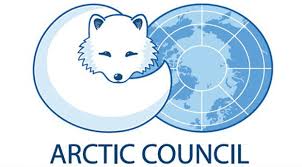Arctic Council 12/05/2019 – Posted in: Daily News
Arctic Council
For: Preliminary & Mains
Topics covered: Arctic Council, Relations with India, Objectives, Working of council, Indian Research stations
News Flash
India was re-elected as an ‘observer’ to intergovernmental forum Arctic Council.
- The decision is taken at the 11th Arctic Council ministerial meeting held at Rovaniemi in Finland.
- India was given observer status in 2013 which was renewed.
Indian and the Council
- Indian researchers have been studying whether there is a co-relation between Indian monsoon and the Arctic region.
- India had embarked upon Arctic research by launching its first scientific expedition in August 2007, using the international research facility at Ny-Alesund in the Spitsbergen Island of Norway.
- The country has since then been regularly sending scientific teams for carrying out studies in the Arctic, primarily in the fields of glaciology, hydrochemistry, microbiology and atmospheric sciences.
- A station building “HIMADRI” with accommodation and work space for a total of eight scientists, was formally inaugurate there on July 1, 2008.
11th Arctic Council
Major issues discussed at the meetings are:
- Concerns over renewed climate policies of US President Donald Trump.
- With sea ice melting due to global warming, the Arctic has become vital for researchers studying climate change.
- China’s (an observing nation in Arctic Council) “Polar Silk Road” plan (as melting ice has opened up new northern shipping routes), which it outlined in 2018.
- Russia’s Northern Fleet modernization and reopened Cold War military bases.
Arctic Council
- The council was established by Ottawa Declaration in 1996. It is headquartered at Tromso, Norway.
- Arctic Council is an intergovernmental forum on exploring the strategically important Arctic region.
- The council consists of eight members nation – Canada, Norway, Denmark, Russia, Finland, Sweden, Iceland and the USA.
- The council promotes cooperation, coordination and interaction among the Arctic states on common issues in general and on issues of sustainable development and environmental protection in the Arctic in particular.
Arctic Council working group
The Council’s activities are conducted in six working groups:
- The Arctic Contaminants Action Program (ACAP) acts as a strengthening and supporting mechanism to encourage national actions to reduce emissions and other releases of pollutants.
- The Arctic Monitoring and Assessment Programme (AMAP) monitors the Arctic environment, ecosystems and human populations, and provides scientific advice to support governments as they tackle pollution and adverse effects of climate change.
- The Conservation of Arctic Flora and Fauna Working Group (CAFF) addresses the conservation of Arctic biodiversity, working to ensure the sustainability of the Arctic’s living resources.
- The Emergency Prevention, Preparedness and Response Working Group (EPPR) works to protect the Arctic environment from the threat or impact of an accidental release of pollutants or radionuclides.
- The Protection of the Arctic Marine Environment (PAME) Working Group is the focal point of the Arctic Council’s activities related to the protection and sustainable use of the Arctic marine environment.
- The Sustainable Development Working Group (SDWG) works to advance sustainable development in the Arctic and to improve the conditions of Arctic communities as a whole.
Research Stations in Arctic and Antarctica
Antarctica
India presently has two research stations at Antarctica namely ‘Maitri’ and ‘Bharati’. ‘Bharati’ was constructed and established in March, 2013. At both the stations, research and investigations are undertaken to understand the Polar processes and phenomenon. Observations and studies are carried out in atmospheric, biological, geological, ecological sciences etc. Maitri station has been in operation since 1989.
In Antarctica scientific studies and investigations are undertaken on the continental part and contiguous shelf ice area. Observations in the ocean in austral summer months are made during the voyage to ‘Maitri’ and ‘Bharati’ on board the chartered vessel hired for transport of material and personnel to these stations.
Arctic
Indian Arctic station ‘Himadri’ is located at Ny Alesund, Spitsbergen Island, Norway and serves as a hub of Indian scientific investigations since 2008.
It was setup by India’s National Centre for Polar and Ocean Research, an autonomous institute under Union Ministry of Earth Sciences.
At Arctic also, meteorological, biological, glaciological and past climate studies are undertaken in the vicinity of the station ‘Himadri’. Local boats are hired for marine research.
Source: Times of India
You can follow us on LinkedIn and for more updates related to UPSC IAS Preparation, Like our Facebook Page and subscribe our Diligent IAS Youtube Channel
Also Read Related Daily News
- Aditya – L1 First Indian mission to study the Sun
- Grizzled Giant Squirrel
- Global Assessment Report on Biodiversity and Ecosystem Services
- Genetic study on people of Lakshadweep Islands

